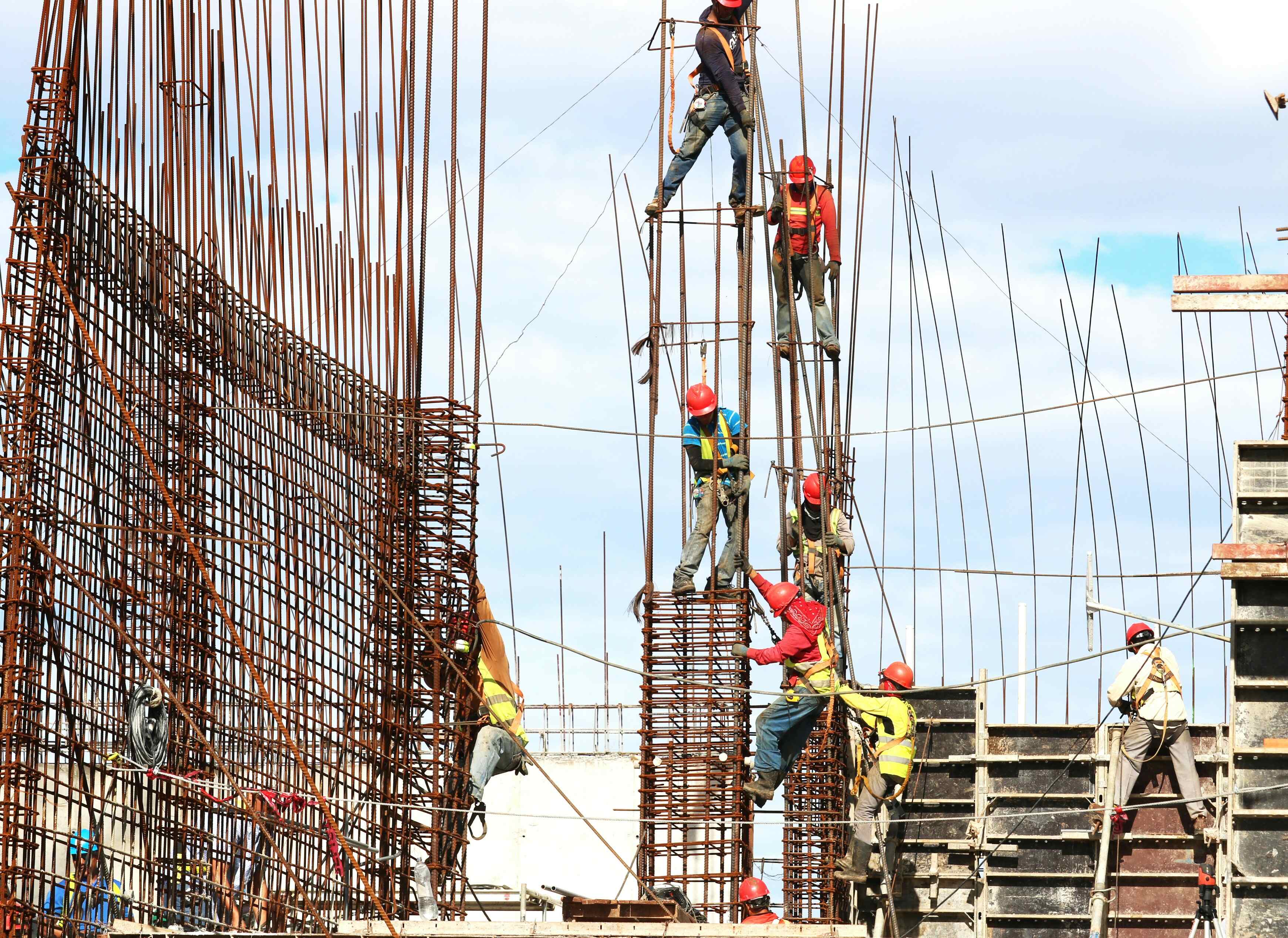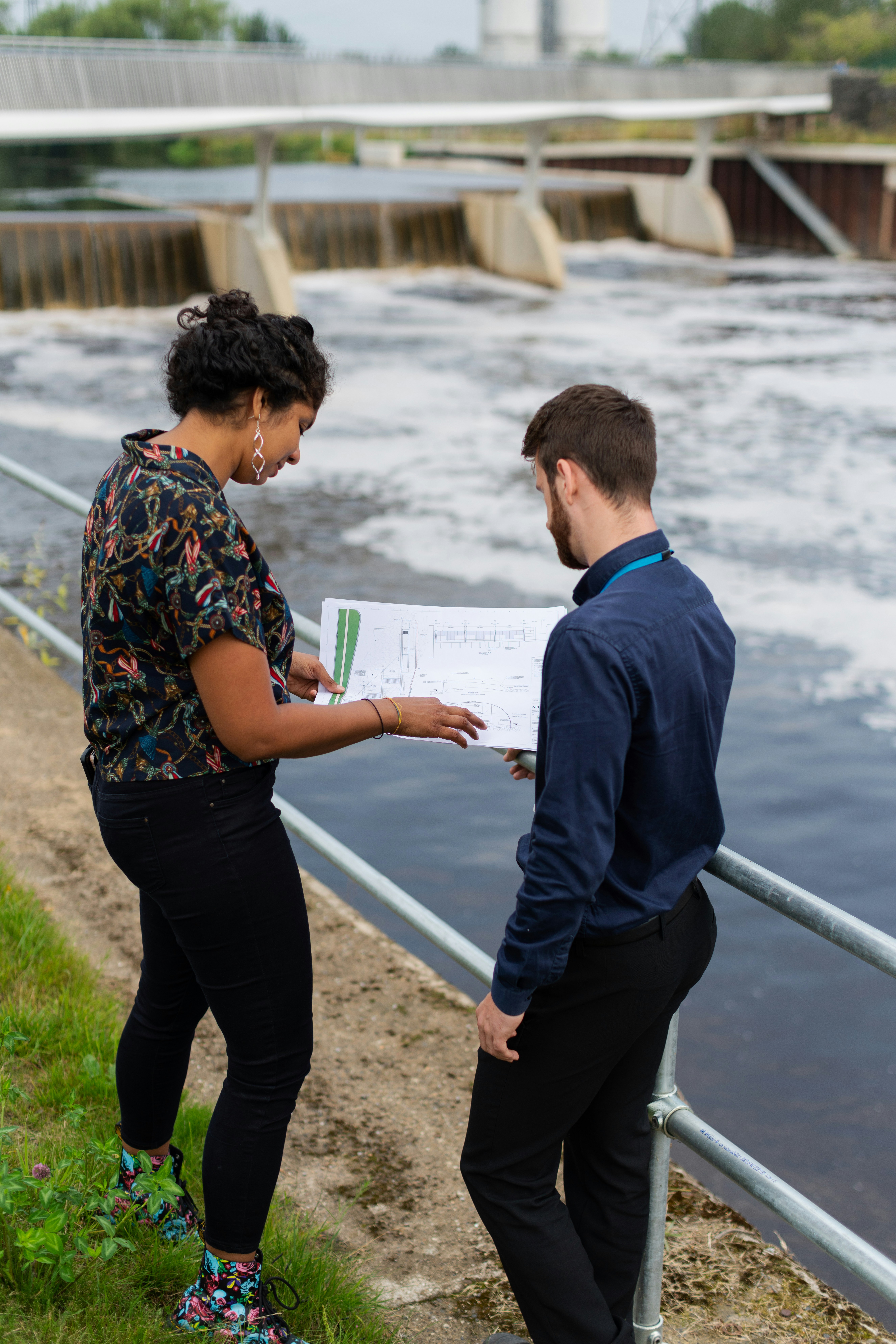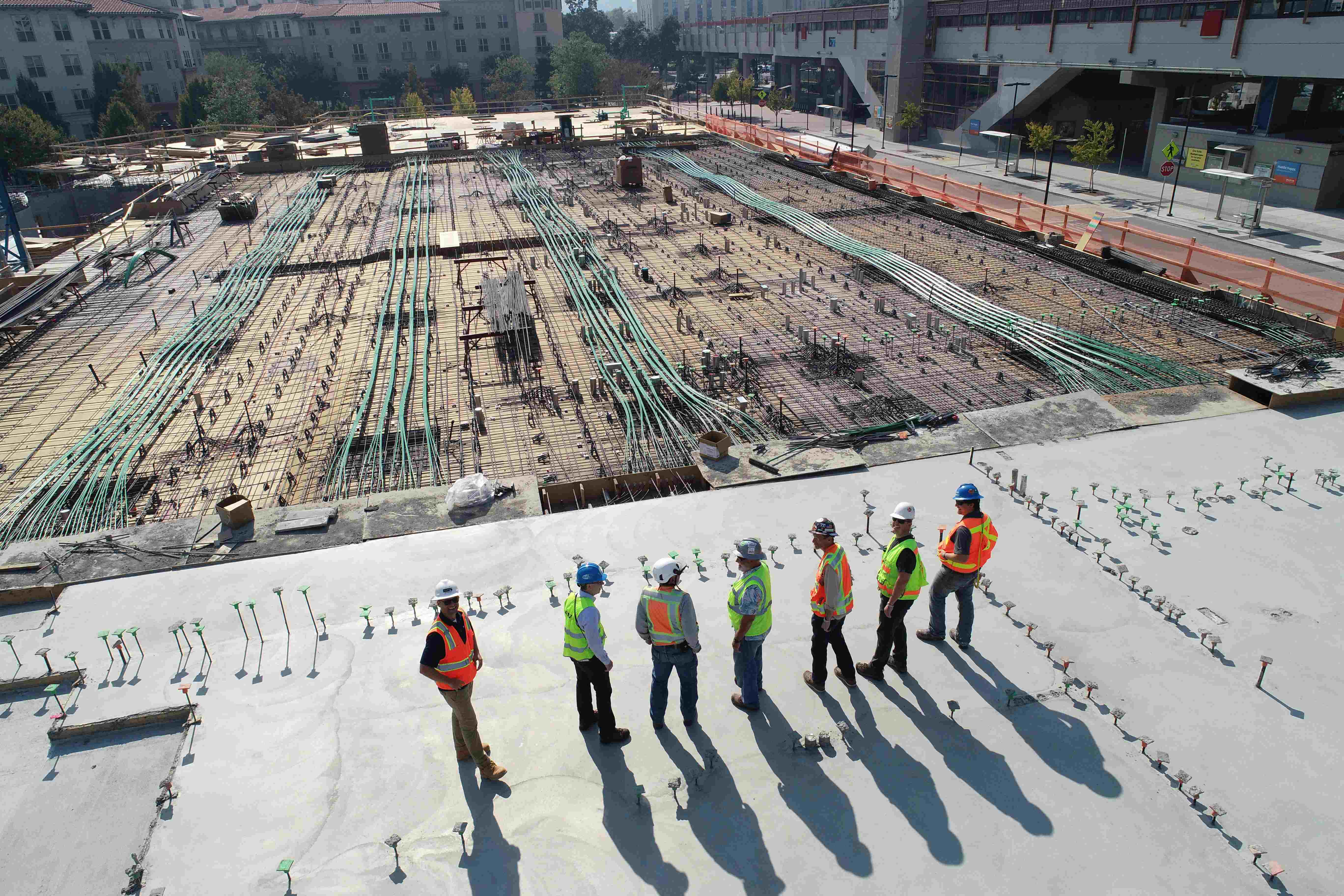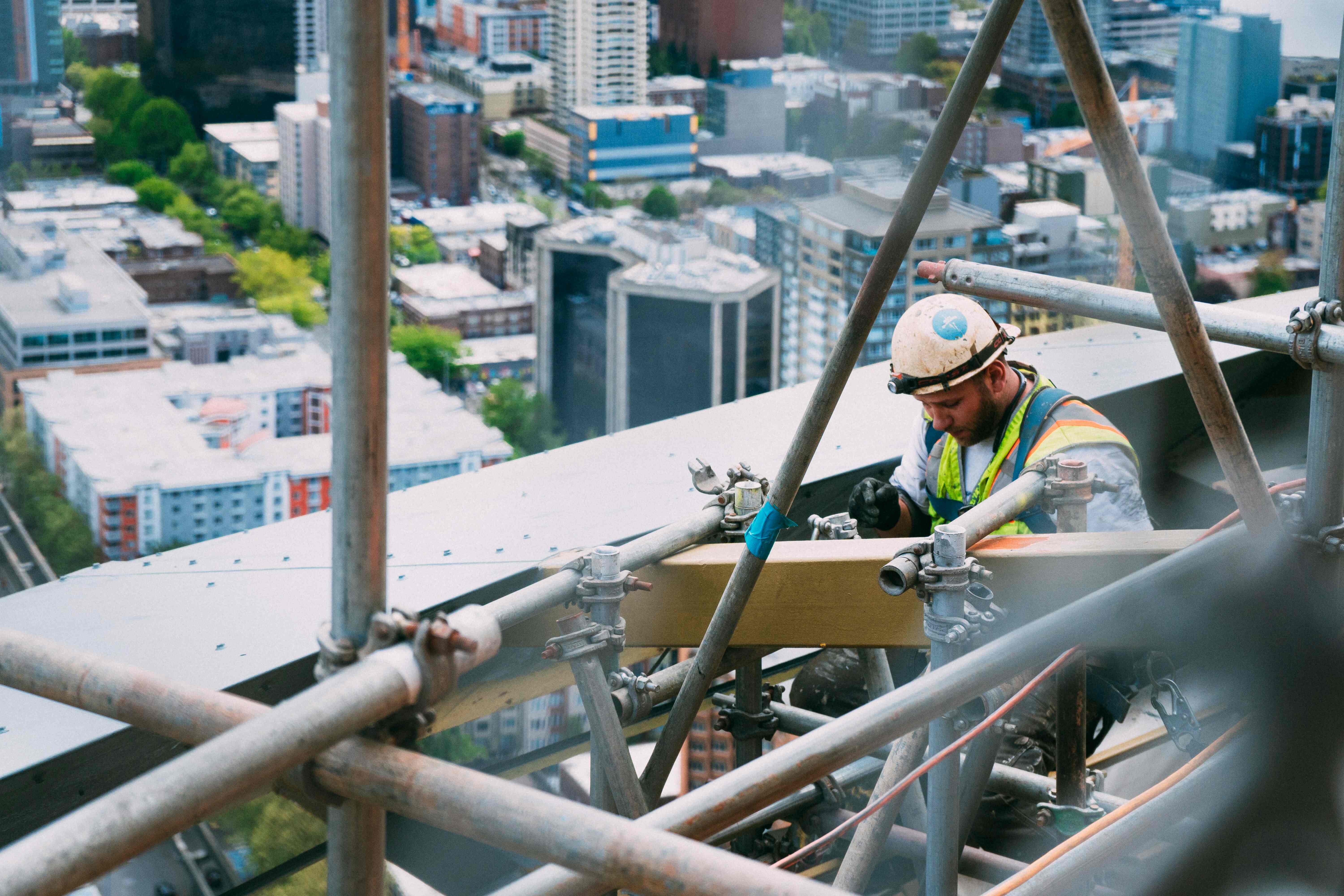Infrastructure projects play a big part in our daily lives, from roads to the power lines that light up our homes. Without strong infrastructure, economies would stagnate, communities would struggle, and our quality of life would drastically change.
Behind every infrastructure project are dedicated professionals with specific expertise who drive success. These professionals collaborate to design, plan, and construct the vital structures that keep our world running smoothly. The importance of their work cannot be overstated.
In this guide, we will explore the top five infrastructure jobs driving key projects forward and the skills, responsibilities, and educational background required to make these projects a reality.
What is the Importance of Infrastructure Development?
Infrastructure and development is an essential part of our daily lives. Advancements in the industry spur economic growth, quality of life and sustainability. Let’s explore this further:
1. Economic Growth
So, how does infrastructure development enhance economic growth? Take a look below:
- Business Development - Well-built roads, efficient railways, and reliable power grids are fundamental for the modern economy. Businesses are drawn to places where they can operate smoothly to maximise productivity.
- Attracting Investment - Well-developed infrastructure signals a stable and business-friendly environment. Investors are more likely to give capital to regions with modern infrastructure, creating infrastructure jobs and stimulating economic activity.
- Reduced Costs - Infrastructure investments can lower businesses' costs. Improved transportation networks, for example, reduce the cost of transporting goods, while reliable energy supplies can lower production costs.
- Innovation Hubs - Modern infrastructure, especially telecommunications and technology, can build innovation and entrepreneurship. Providing new tools and resources can lead to the development of new industries and products, further driving economic growth.
2. Quality of Life
There are many ways in which infrastructure and development enhance quality of life. Here are a few for you to keep in mind:
- Essential Services Within Reach - Well-developed infrastructure ensures that basic necessities, such as education, healthcare, and access to food, are readily available to all community members. As a result, this enhances overall well-being and quality of life.
- Bridging the Gap of Poverty - Infrastructure contributes to poverty reduction. By creating infrastructure jobs, improving access to education and healthcare, and facilitating economic development, infrastructure can help individuals and communities escape the cycle of poverty.
- Safety - Reliable infrastructure, including transportation networks and emergency response systems, provides a safety net for communities. This ensures that residents can access essential services during emergencies.
3. Sustainable Development
Infrastructure and development can greatly enhance sustainability, opening doors to several new opportunities. Here’s how:
- Resource Efficiency - Efficient infrastructure is essential for sustainable development. By optimising resource utilisation, reducing waste, and promoting energy efficiency, businesses can preserve natural resources for future generations.
- Resilience in the Face of Climate Change - Resilient infrastructure is crucial to adapting to climate change challenges. We can protect our natural environments by designing and constructing infrastructure that can withstand climate-related impacts.
- Opportunity - Investing in sustainable infrastructure is a long-term investment in the future. By ensuring that future generations have access to modern and environmentally friendly infrastructure, we are creating opportunities for a sustainable planet.
The Top 5 Infrastructure Jobs
With the government announcing a record £650 billion investment in infrastructure in 2021, it is expected to support 425,000 jobs annually between 2021 and 2025. As investment and advancements become more prevalent, new and evolving infrastructure jobs will rise, and the demand for skilled professionals for these roles will increase.
With this in mind, let’s explore some of the most essential and impactful infrastructure jobs within the industry:
1. Project Manager
First, let’s discuss Project Managers, who are essential parts of an infrastructure and development team. Why? Project Managers steer infrastructure projects from inception to completion.
Responsibilities within Project Manager jobs include developing detailed plans, managing budgets, coordinating resources, and ensuring that every project phase runs smoothly. Project managers are central to communication and liaise with stakeholders to resolve issues as they arise and make sure that the project aligns with its goals and quality benchmarks.
Project Manager Skills
Below are the essential skills you must acquire to embark on Project Manager jobs in the infrastructure and development industry:
- Leadership and Team Management - Project Managers must be able to guide and motivate multiple teams to collaborate effectively.
- Time and Resource Management - Strong time management skills are a must, and Project Managers should be able to organise schedules and allocate resources efficiently.
- Financial Acumen - Skills in managing budgets and controlling costs to keep the project within financial limits.
- Risk Assessment - Identify potential risks early and implement strategies to mitigate them.
- Strong Communication - Professionals must communicate clearly and effectively with all involved parties.
Educational Path
The traditional educational path of a Project Manager in the infrastructure and development industry looks like:
Typically, a bachelor’s degree in Construction Management, Civil Engineering, or a related field is required. Degrees, such as an MBA or a master’s in Project Management, can also enhance career prospects. Certifications like PMP (Project Management Professional) are highly recommended for demonstrating expertise and progress.
2. Urban Planner
Urban planners shape the development of cities and communities. Creating and implementing land use plans and policies is a crucial part of the role, where balancing urban development's environmental, economic, and social considerations is essential.
By proposing solutions that enhance living conditions, Urban Planners can address the challenges of infrastructure demands. Although their work often goes unnoticed by the public, it significantly influences the functionality of our urban environments.
Urban Planner Skills
So, what skills should you have as an Urban Planner? Take a look at the following:
- Strategic Planning - Urban Planners must develop land use and urban development plans to support sustainable growth.
- Data Analysis - Proficiency in using and analysing demographic, environmental, and economic data to inform planning decisions.
- Regulatory Knowledge - Apply zoning and land use regulations to ensure compliance and effective planning.
- GIS and Mapping - Professionals must be able to use Geographic Information Systems for spatial analysis and detailed mapping.
- Public Engagement - Collaborate with community members and stakeholders to gather input and address public needs.
Educational Path
A strong educational background is essential for progressing as an Urban Planner in the infrastructure and development industry. Here’s what it should look like:
To succeed as an Urban Planner in the infrastructure industry, a bachelor’s degree in Urban Planning, Geography, or Environmental Design is usually required. For more advanced roles, a master’s degree in Urban Planning is often necessary. Additionally, certifications such as AICP (American Institute of Certified Planners) can enhance professional credentials and career prospects.
3. Civil Engineer
Often regarded as the backbone of infrastructure development, Civil Engineers take on the critical task of designing and constructing infrastructure like bridges, roads, and water systems. However, their role extends beyond just construction. Civil Engineers also ensure that projects comply with environmental and regulatory standards.
Employment of Civil Engineers is expected to increase by 6% from 2023 to 2033, a rate that surpasses the average growth for all occupations. Over the decade, approximately 22,900 Civil Engineer jobs are anticipated annually. These opportunities will largely arise from the need to replace workers who transition to other careers or leave the workforce, such as those retiring.
Civil Engineer Skills
To become a Civil Engineer in the infrastructure and development industry, you must possess the following skills:
- Engineering Design - Involves creating detailed and precise plans and laying the groundwork for projects that need to meet specific standards.
- Technical Problem-Solving - From selecting materials to maintaining structural integrity, addressing construction challenges professionally is a key skill.
- Project Oversight - Ensuring construction stays on track and follows the plan while meeting all safety requirements.
- Regulatory Knowledge - Keeping projects compliant with environmental regulations and building codes to protect the community and the environment.
- Effective Communication - Prioritising smooth collaboration among architects, planners, and construction teams to ensure everyone works towards the same goals.
Educational Path
Take a look below to discover the educational background required for Civil Engineer jobs:
A bachelor’s degree in Civil Engineering is the standard foundation for entering Civil Engineering jobs. Yet, for those looking for more specialised roles, a master’s degree in areas such as transportation or structural engineering can be particularly beneficial. Obtaining a Professional Engineer (PE) license is also crucial for career advancement, as it provides the authority to approve projects and ensures that Civil Engineers can take on more complex responsibilities.
4. Surveyor
Surveyor jobs are essential parts of the infrastructure development process. To summarise, they provide the precise measurements and maps that form the foundation for planning and executing construction projects.
Using cutting-edge technology, surveyors gather accurate data that define property boundaries and ensure that projects comply with legal and technical requirements. Although much of their work happens behind the scenes, without it, infrastructure projects could never take shape in a precise and orderly manner.
Surveyor Skills
The most important skills a professional must have as a Surveyor in the infrastructure and development industry are:
- Land Measurement - Surveyors must be able to take precise measurements and assessments of land, providing data that drives all infrastructure projects.
- Technical Proficiency - Technical skills in accurately operating advanced surveying instruments and software are essential.
- Topographical Analysis - Surveyors must be knowledgeable about topographical analysis. Professionals must understand the contours and features of the land to guide effective project design and development.
- Legal and Regulatory Compliance - Ensures that all surveys meet legal standards and property laws, preventing disputes and leading to smooth project execution.
- Data Interpretation - Skills in producing and interpreting detailed maps and plans are crucial for guiding construction and ensuring that projects adhere to design specifications.
Educational Path
Here is this educational path employers would look for when hiring for Surveyor jobs:
A bachelor’s degree in Surveying, Geomatics, or a related field is typically required. State licensure is also necessary to perform legal surveys. Given the rapid technological advancements in the industry, ongoing education is vital for surveyors to maintain their expertise.
5. Environmental Engineer
Environmental Engineer jobs are essential in making sure infrastructure projects are environmentally friendly. They design and manage systems to control pollution, handle waste, and support sustainable development. Working closely with other professionals and regulatory bodies is essential in this role.
The main priority is to ensure projects meet environmental standards and contribute to public health. In short, they help shape a greener future by integrating eco-friendly practices into every phase of infrastructure development.
Environmental Engineer Skills
If you're interested in Environmental Engineer jobs, here are the key skills you will need:
- Analytical Thinking - Ability to assess environmental data and develop effective solutions.
- Regulatory Knowledge - Professionals must be familiar with environmental laws and regulations to ensure compliance.
- Problem-Solving - Skill in identifying environmental issues and implementing appropriate interventions.
- Communication - Proficient in conveying complex environmental concepts to both technical and non-technical stakeholders.
- Project Management - Capable of overseeing environmental projects from inception through completion, ensuring timelines and goals are met.
Educational Path
A relevant education history is always beneficial in securing your dream role. An ideal educational path for Environmental Engineer jobs should include:
A career as an Environmental Engineer often begins with a bachelor's degree in a subject like environmental engineering or a related field. Many professionals also pursue advanced degrees or certifications to broaden their expertise and open doors to new opportunities, especially for leadership roles.
To learn about current innovative projects within the construction and infrastructure industry, discover our insightful guide - Five Projects that Will Transform the Construction Job Market.
Final Word: What Are The Top 5 Infrastructure Jobs?
Pursuing a career in infrastructure is not only rewarding but also vital to the functioning of modern society. Whether you’re drawn to the leadership role of a Project Manager or a Civil Engineer's technical precision, the infrastructure industry offers a range of opportunities. Infrastructure jobs are crucial in shaping our environments, ensuring that communities are connected, safe, and sustainable.
The demand for skilled professionals in infrastructure is only set to grow as investments in infrastructure projects increase globally. Growth presents a unique opportunity for those with the right expertise to make a lasting impact on society. By developing the necessary skills and obtaining the appropriate educational background, you can position yourself at the forefront of the industry.
Ultimately, a career in infrastructure allows you to be part of something much larger. Your work in this field directly influences how people live, work, and interact with their surroundings.
Ready to Begin Your Career in Infrastructure and Development?
At the heart of our infrastructure recruitment agency are four key values: ambition, experience, global reach, and honesty. Our principles guide us in connecting exceptional candidates with the best infrastructure jobs. Whether you’re looking to lead major projects or contribute your expertise in a critical position, our dedication ensures that you’re matched with opportunities that align with your skills and aspirations.
Contact us today to discover your next career opportunity.





